The 2023 Virtual World Conference will feature eight keynotes. Details about the speakers and presentations will be included below as they are available.
In today’s fast expanding and evolving technological world, the importance of Science, Technology, Engineering, and Mathematics (STEM) subjects cannot be overstated. As the need for talented minds in these fields continues to grow, it is crucial to ensure that all students have access to quality STEM education. However, despite increased attention and investment in STEM education, excellence gaps persist in these subjects, particularly among underrepresented and marginalized groups. These gaps not only perpetuate inequality but also have implications for the future of the innovation and workforce.
In my keynote address, I will present my research findings and analysis of existing literature and other empirical studies, and finally discuss their implications for policymakers, educators, and other stakeholders in the STEM education community. My research essentially focuses on (1) quantifying excellence gaps through robust techniques, (2) exploring the causes and consequences of these gaps, and (3) developing effective strategies and interventions to address them. My presentation will also draw attention to the urgent need for action to address excellence gaps in STEM learning and highlight the promising strategies and initiatives that can help us move toward a more equitable and inclusive STEM education system for all.
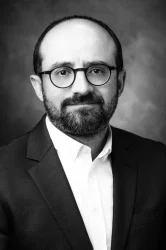
Kadir Bahar, Ph.D. is an Assistant Professor of Educational Psychology at the University of Georgia. After graduating from Bilkent University (Turkey) with a degree in Industrial Engineering, he completed his Ph.D. in Special Education with a focus on Gifted Education and minor in Mathematics Education at the University of Arizona. Dr. Bahar’s research interests include excellence gaps, mathematical creativity, and talent development. Before his position at UGA, Dr. Bahar was a professor at the University of Wisconsin-Stevens Point, served as the coordinator of graduate programs in Gifted Education and directed youth programs including Youth in College and STEM for Young Scholars. His research has appeared in journals including Gifted Child Quarterly and Journal of Advanced Academics. Currently Dr. Bahar serves as the associate editor of the Gifted and Talented International, and he is in the editorial board of the Gifted Child Quarterly and Gifted Education International.
Nearly every general education classroom includes neurodiverse students. Understanding neurodiversity as well as how giftedness fits into the concept is a critical competency for every educator. As we shift from thinking in terms of (dis) ability to neurodiversity, neurotypical and neuroatypical we must consider how to describe and implement education that honors and supports these unique students. Is this a new pedagogy or, are we simply using new words to describe the same phenomenon? In what ways can educators create an infrastructure that supports these neurodiverse students? In this keynote session, a panel of international experts will discuss evidence-based and promising practices that address neurodiversity within the context of a school setting.

Wendy Behrens is the Gifted and Talented Education Specialist for Minnesota Department of Education. Her work focuses on creating an equitable infrastructure supporting gifted and talented learners through policy, advocacy, and teacher training. Wendy is a Past-President of the Council of State Directors of Programs for the Gifted and President of The Association for the Gifted. She serves on a several advisory and editorial boards and is a former WCGTC delegate. She has authored books and chapters on gifted education. She frequently presents to national and international audiences on comprehensive service design, acceleration, under-served populations, and policies that support highly able learners.
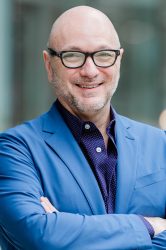
Matthew Fugate, Ph.D., is Provost of Bridges Graduate School of Cognitive Diversity in Education. He received his doctorate in Gifted, Creative, and Talented Studies from Purdue University. Previously, Matthew worked as an elementary teacher, Gifted Coordinator, and Magnet School Coordinator. His research interests include twice-exceptional students and students from underserved populations. Matthew has presented on topics including the social-emotional needs of twice-exceptional students, culturally responsive pedagogy, and creativity. He is currently President-elect for the Texas Association for Gifted and Talented. Matthew was named one of the 22 People to Watchin the neurodiversity movement by 2e Media.
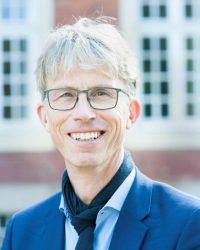
Dr. Christian Fischer is Full Professor for Educational Science with a focus on School Pedagogy: Research on Giftedness and Individual Promotion at University of Muenster (Germany). He is also Vice-Dean for Research and Transfer at the Faculty of Education and Social Science at the University of Münster. Dr. Christian Fischer is Chairman of the Board of the International Center for the Study of Giftedness from the Universities of Münster, Osnabrück and Nijmegen (The Netherlands). He also serves as Scientific Director of the State Competence Center for Individual Promotion North Rhine-Westphalia from the University of Münster and the Ministry of Education. Dr. Christian Fischer is also Chair of the Educational Board of the European Council for High Ability and serves as a German Delegate of the World Council for Gifted and Talented Children. His research focuses on Gifted Education, Talent Development, Individual Promotion, Self-regulated Learning, Education for Sustainable Development, Diversity in Giftedness, Twice/Multi-Exceptional Learners, Teacher Education.
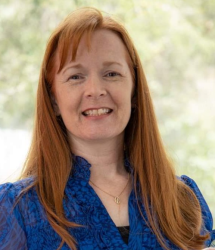
Dr Michelle Ronksley-Pavia is a lecturer in the School of Education and Professional Studies, and a researcher with the Griffith Institute for Educational Research at Griffith University, Australia. Dr Ronksley-Pavia is an internationally recognised award-winning researcher, working for over two decades in the field of gifted education, twice-exceptionality, inclusive education, and teacher education. She has developed gifted education professional learning programmes for teachers and schools, and regularly presents on twice exceptionality, student engagement, underachievement and underserved gifted populations. Dr Ronksley-Pavia has published numerous articles and book chapters and she regularly reviews for international gifted education journals. She is the parent of twice-exceptional offspring, gifted education advocate, and an active member of many gifted education communities. Dr Ronksley-Pavia serves as an Australian Delegate on the WCGTC and has also served as a member of the writing team for the WCGTC’s Global Principles for Professional Learning in Gifted Education.
To be able to compete in a way that develops the competitors and helps to bring out their best is a significant social-motivational skill that gifted students undoubtedly need in order to optimally develop their abilities and knowledge. Since competition is one of the most effective institutions for identifying talents everywhere in the world, those who are perceived as having exceptional abilities tend to participate in contests often. If they stay away from contests, they risk not being identified which may lead to the situation that they do not receive the necessary resources and educational or financial support that would promote their further development.
While the potential beneficial and detrimental effects of contests are relatively widely researched, their role in the case of participants with different competitive attitudes, different patterns of coping with winning and losing, and different psychological protective factors is a mostly undiscovered area; however, these may have an effect on young people’s with high abilities approaching or avoiding contests. Even much less attention was given to the systematic research of the adaptive ways of coping with winning as generally losing has been considered to have a more damaging effect. To be a winner or a loser has not only individual emotional, cognitive, and behavioral consequences but also social consequences and to successfully manage them requires skills as well.
This talk will present empirical research data about these psychological phenomena among the gifted and will highlight the potential role of educators and parents in the socialization of the “gifted competitor.”
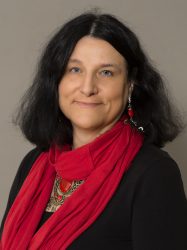
Márta Fülöp is a scientific advisor and head of the Social and Cultural Psychology Research Group in the Institute of Cognitive Neuroscience and Psychology, Research Centre of Natural Sciences. She is also a professor of social and cultural psychology at the Institute of Psychology of Karoli Gaspar University, Budapest, Hungary. Her research focuses on the psychology of competition, competitive attitudes, their relationship with mental and somatic health, coping with winning and losing, cross-cultural differences in competition and also the competitiveness of the gifted. She wrote the chapter Cooperation and Competition in the Handbook of Childhood Social Development (Wiley-Blackwell). She is secretary general of the International Association for Cross-Cultural Psychology and president of the Children’s Identity and Citizenship: European Association.
This talk focuses on the meaning of a ‘changing world’ for talent development. It proposes that we should focus on educating talent not only on the fact that gifted individuals live ‘in’ a changing world but that they need to thrive under uncertain and rapidly changing conditions. As such, educating ‘for’ a changing world raises the important question of what kinds of skills, knowledges, mindsets, and, indeed, talents, are required to successfully respond to the many challenges of today. The field of Possibility Studies will be introduced as an emergent area of research and practices that examines how individuals and collectives become aware of and explore the possible in psychological, social, material, technological, cultural, and/or political terms. Gifted education, it will be argued, should be particularly invested in identifying and developing possibilities for everyone and cultivating, in priority, those talents and inclinations that help people adapt to a changing world, continue to change it, and change it for the better.
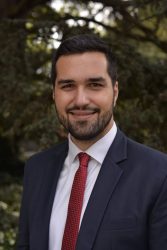
Vlad Glăveanu, PhD, is Full Professor of psychology in the School of Psychology, Dublin City University, and Professor II at the Centre for the Science of Learning and Technology, University of Bergen. He is the founder and president of the Possibility Studies Network (PSN). His work focuses on creativity, imagination, culture, collaboration, wonder, possibility, and societal challenges. He edited the Palgrave Handbook of Creativity and Culture (2016) and the Oxford Creativity Reader (2018), co-edited the Cambridge Handbook of Creativity Across Domains (2017) and the Oxford Handbook of Imagination and Culture (2017), authored The Possible: A Sociocultural Theory (Oxford University Press, 2020), Creativity: A Very Short Introduction (Oxford University Press, 2021), and Wonder: The Extraordinary Power of an Ordinary Experience (Bloomsbury, 2020), and authored or co-authored more than 200 articles and book chapters in these areas. He co-edits the book series Palgrave Studies in Creativity and Culture with Palgrave and the Cambridge Series on Possibility Studies with Cambridge University Press. He is editor of Europe’s Journal of Psychology (EJOP), an open-access peer-reviewed journal published by PsychOpen (Germany) as well as Possibility Studies and Society, launched by Sage in 2022. In 2018, he received the Berlyne Award from the APA Division 10 for outstanding early career contributions to the field of aesthetics, creativity, and the arts.
Compared to typically achieving students, high achieving students may not benefit as much from their time in school. Typically, students are taught academic standards and objectives consistent with their grade level, but this ignores the wide range of variability in achievement in those grade levels. In this keynote address, I will weave together a series of studies. Leaning on multiple theoretical frameworks for achievement and growth, I will start by establishing the typical range of achievement is within grade levels and classrooms and then discuss how prior achievement relates to subsequent academic growth in both elementary reading and mathematics. I will address who needs advanced academic services, how and when advanced students grow, and what are some ways to ensure all students have their academic needs met.
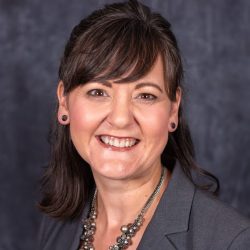
Dr. Karen E. Rambo-Hernandez is an associate professor at Texas A&M University in the School of Education and Human Development. Her research focuses on access for all students— particularly high achieving and underrepresented students— to high quality education and the assessment of educational interventions to improve STEM education. Along with her research teams, she has received over $3.4 million in grant funding from organizations such as the National Science Foundation and the U.S. Department of Education Javits Grants. Dr. Rambo-Hernandez was the District Teacher of the Year in Coppell, Texas, in 2006 and received the National Association of Gifted Children’s Early Scholar Award in 2019.
Without reflecting, we either don’t move forward or do so without considering the consequences. This keynote will discuss highlights in gifted education and talent development in the past and the present, as well as offer possibilities for the future. What has been steady in gifted education, and what has changed? What may the future of gifted education and talent development include?
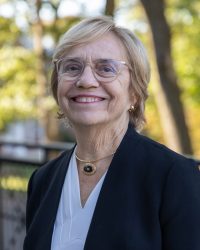
Julia Link Roberts, Ed.D., is the Mahurin Professor of Gifted Studies at Western Kentucky University. She is the Executive Director of The Center for Gifted Studies and The Carol Martin Gatton Academy of Mathematics and Science in Kentucky. Dr. Roberts is past-president of the World Council for Gifted and Talented Children and a board member of The Association for the Gifted (a division of the Council for Exceptional Children) and the Kentucky Association for Gifted Education. She is chair of the Kentucky Advisory Council for Gifted Education. She was honored with the Acorn Award which recognizes the outstanding professor at a four-year college in Kentucky. Dr. Roberts received the first David W. Belin NAGC Award for Advocacy and the NAGC Ann F. Isaacs Founding Member’s Award. Dr. Roberts and her daughter Julie Boggess have authored Teacher’s Survival Guide: Gifted Education (2nd edition, 2020). She is coauthor with Dr. Tracy Inman of Strategies for Differentiating Instruction: Best Practices for the Classroom, (4th ed.) and the 2009 Legacy Award winner for the outstanding book for educators in gifted education by the Texas Association for the Gifted and Talented and Assessing Differentiated Student Products: A Protocol for Development and Evaluation. With Dr. Inman and Dr. Jennifer Robins, she edited Introduction to Gifted Education, a Legacy Award-winning book in the scholarship category, and they have a 2nd edition in 2022. Dr. Roberts directs summer and Saturday programs for children and young people who are gifted and talented. Dr. Roberts directs summer and Saturday programming for children and young people. She also teaches graduate classes in gifted education and talent development.
Intellectual styles are people’s preferred ways of using their abilities. In this fast-changing world in which creative thinking and behaviors are constantly called for, intellectual styles play an even more crucial role in gifted education. This talk showcases primary research evidence demonstrating that giftedness is strongly associated with the propensity for using creativity-generating intellectual styles; it argues that intellectual styles is a real psychological phenomenon. The talk further presents empirical evidence revealing that styles can be modified through both socialization and training. Finally, the talk completes with a discussion on the implications of the research findings respectively for identification of gifted students and for special gifted education programs and inclusive gifted education.
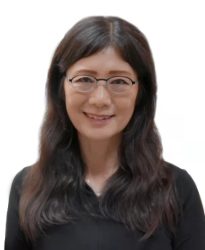
Li-fang Zhang is Professor of Psychology and Education at The University of Hong Kong. She has published dozens of academic book chapters and books (including two monographs by Cambridge University Press) and (co)authored nearly 140 peer-reviewed journal and encyclopedic articles. She is the editor-in-chief of the Oxford Encyclopedia of Educational Psychology and serves as consulting editor of Journal of Educational Psychology and associate editor of Educational Psychology. She is also an editorial board member of several other academic journals in psychology and education.